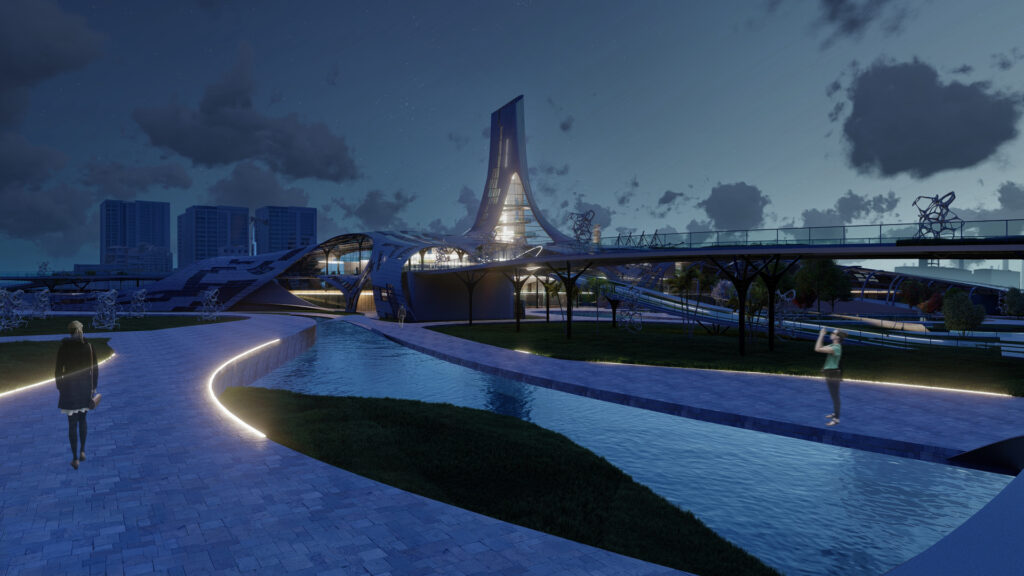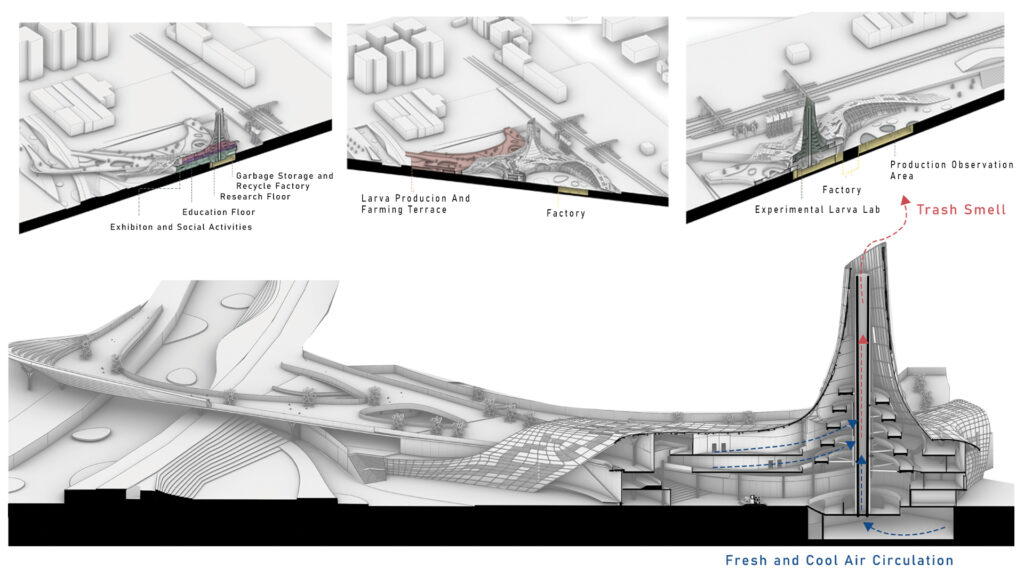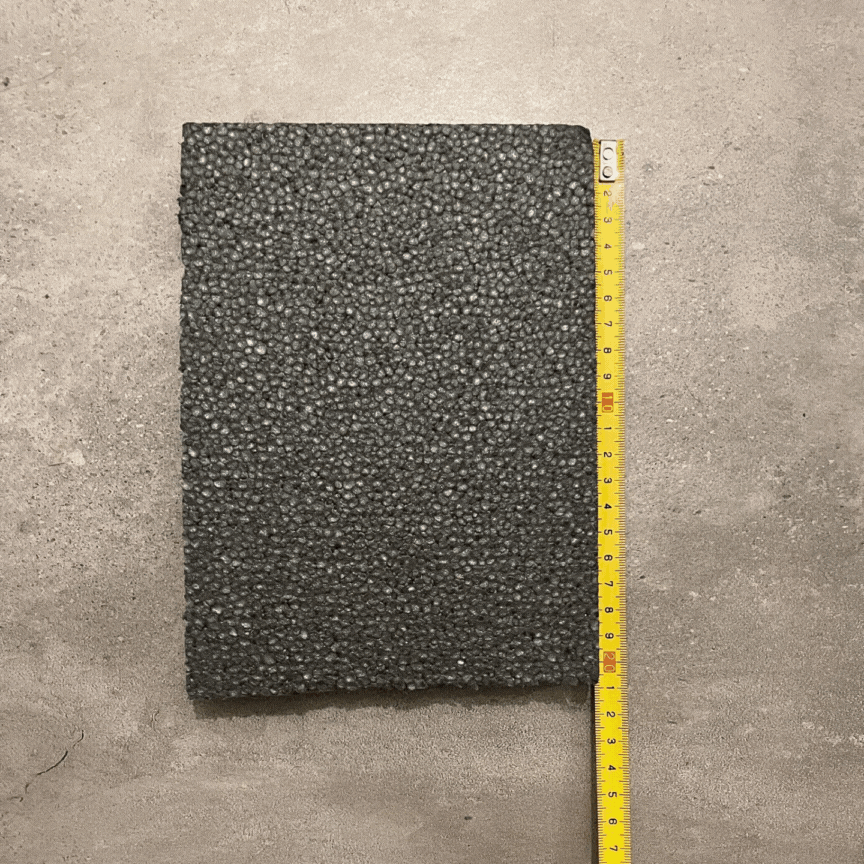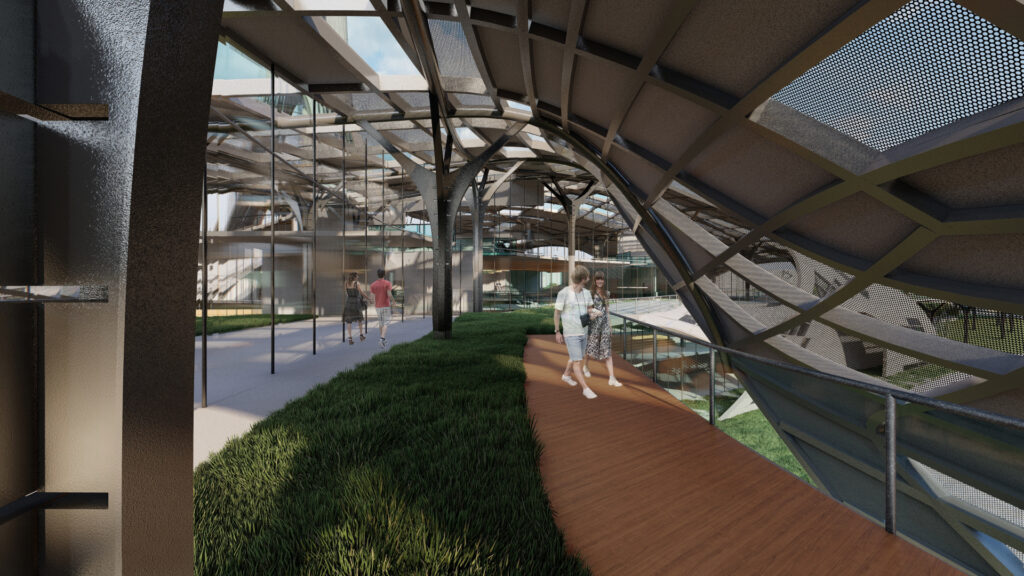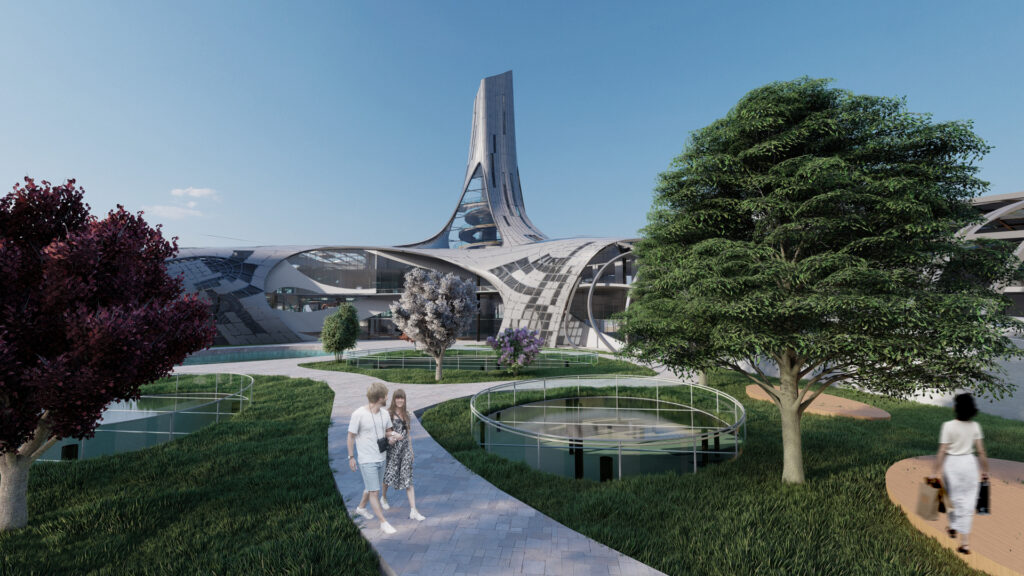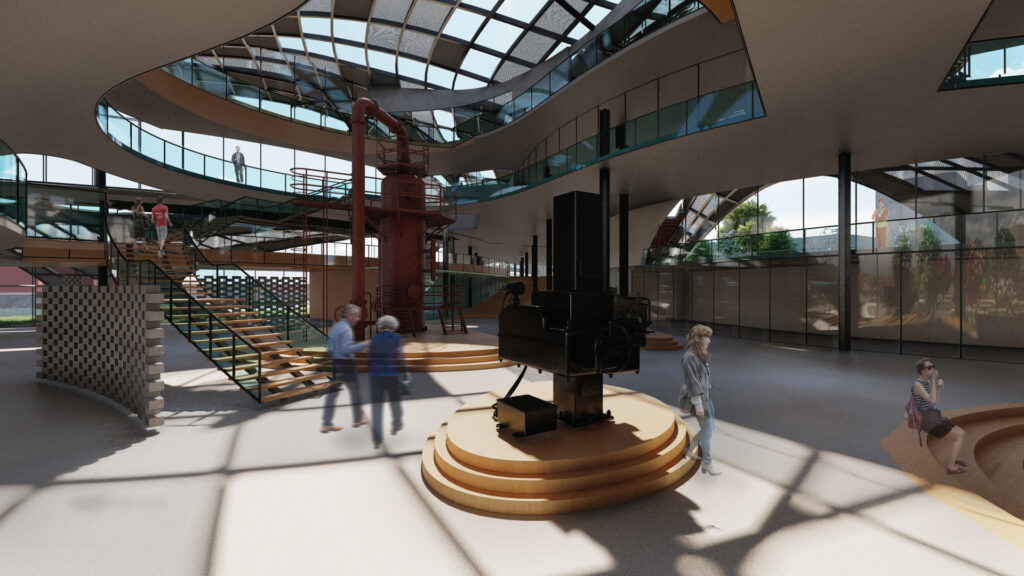The project is located on the outskirts of Adana, sandwiched between slums, industrial areas, and agricultural lands. The primary reason for choosing Adana is the plastic problem that has emerged in recent years. Boat and train services from the city center are also proposed, along with a green axis along the river to attract people to the site. Additionally, the project aims to create a microclimate by diverting the river through the land. In Catalystica, both traditional methods and mealworms are used for recycling. Mealworms consume plastic and break it down into polymers, with their waste serving as fertilizer in agriculture. The project includes research areas on mealworms and plastics, a community center, and a factory, with the purpose of conducting research and raising public awareness.
A chimney gathers all these functions under a single roof, utilizing the stack effect to ensure a constant circulation of clean and cool air. A second layer inside the chimney carries garbage smells from the factory’s warehouse. The name Catalystica is derived from the word “catalyst,” which refers to a substance that accelerates a chemical reaction without being consumed itself. The name Catalystica intends to represent the project’s role as a catalyst for change in both plastic usage and society as a whole. The “-ica” suffix in the name suggests a place or location, emphasizing the physical aspect of the project as a facility for plastic recycling and transformation.
Author: Taylan Özgür Aksoy
Studio: Arch 402 Spring 2023
Instructor(s): Bilkay Begüm Peker
